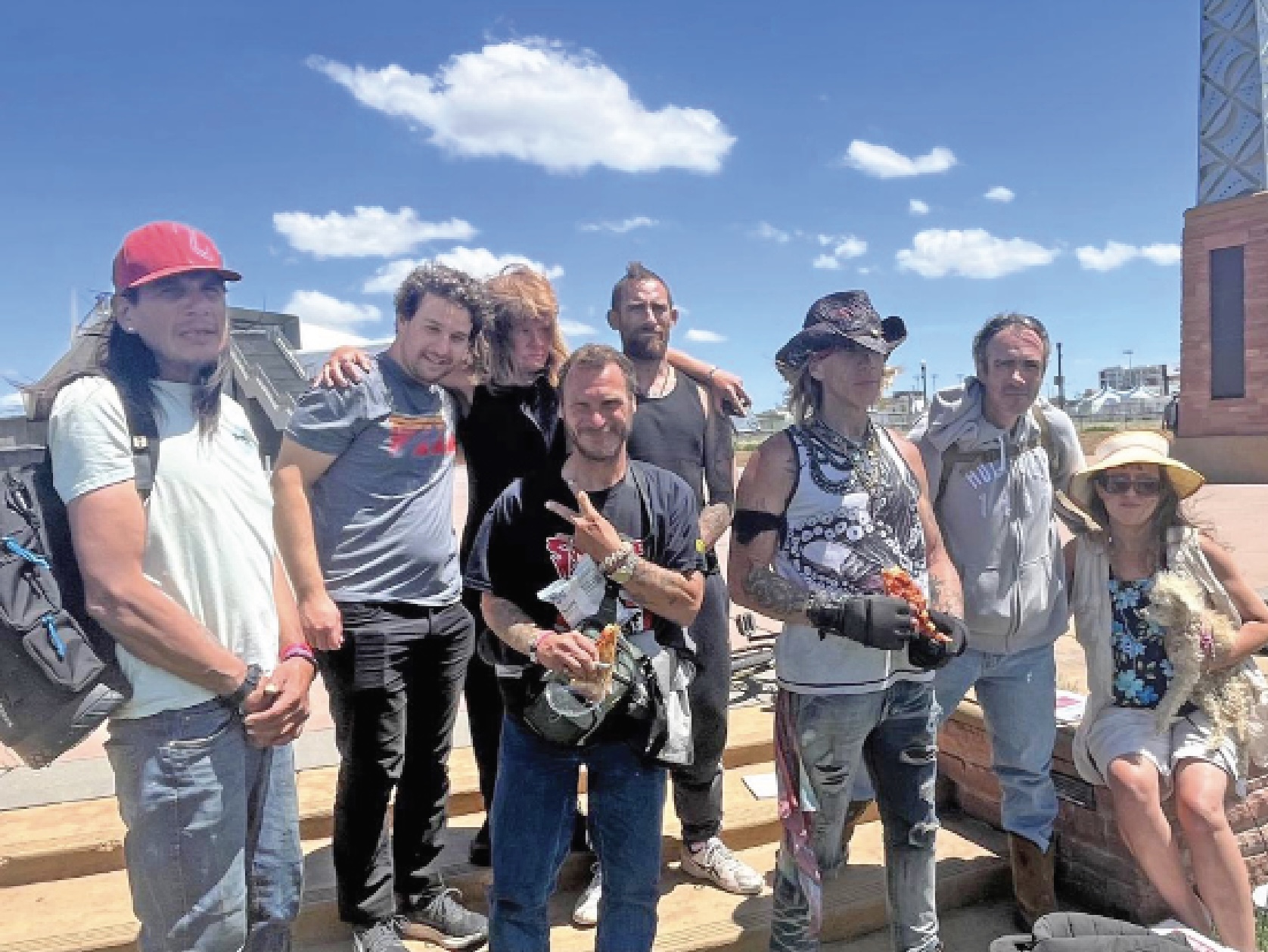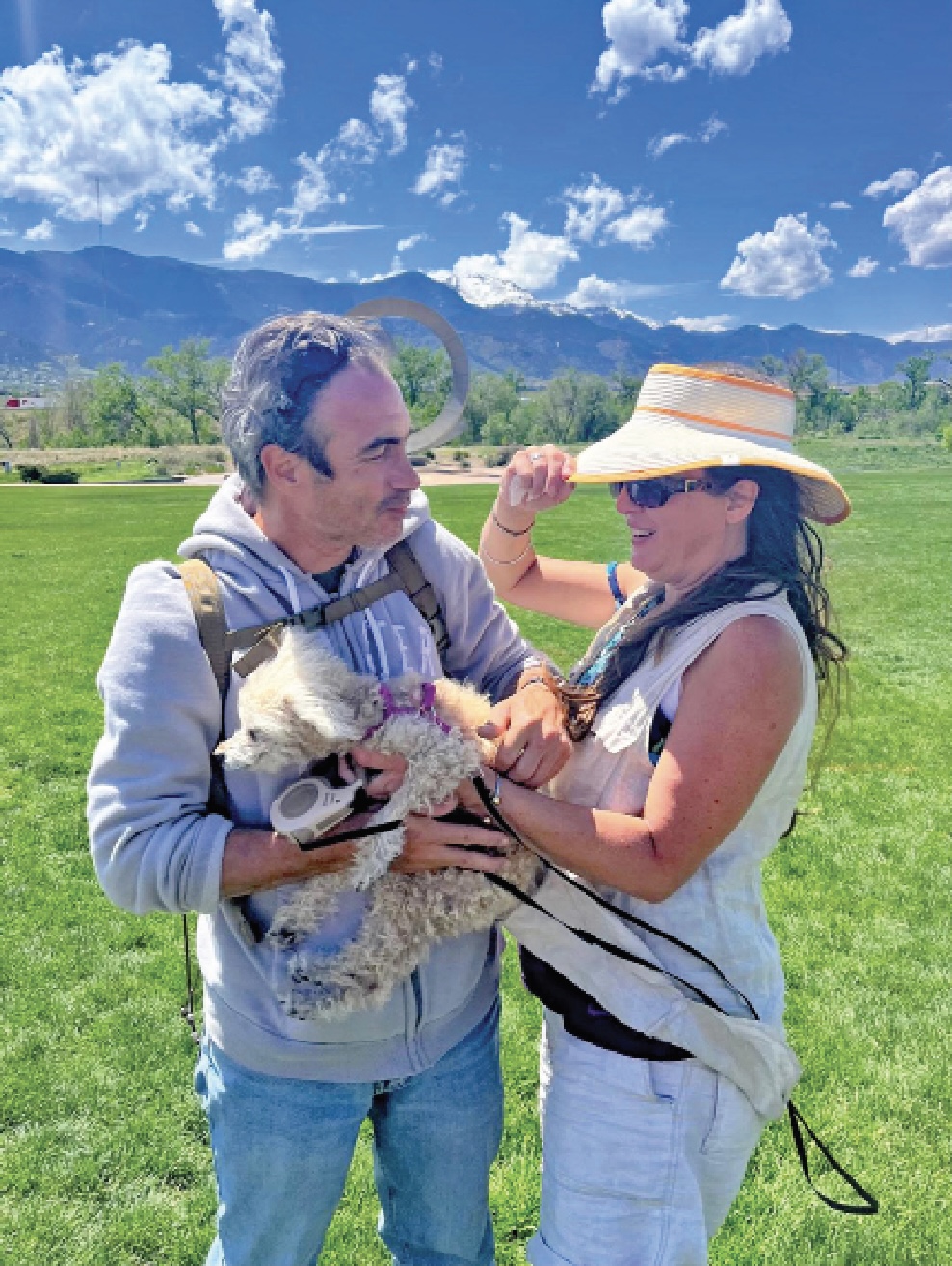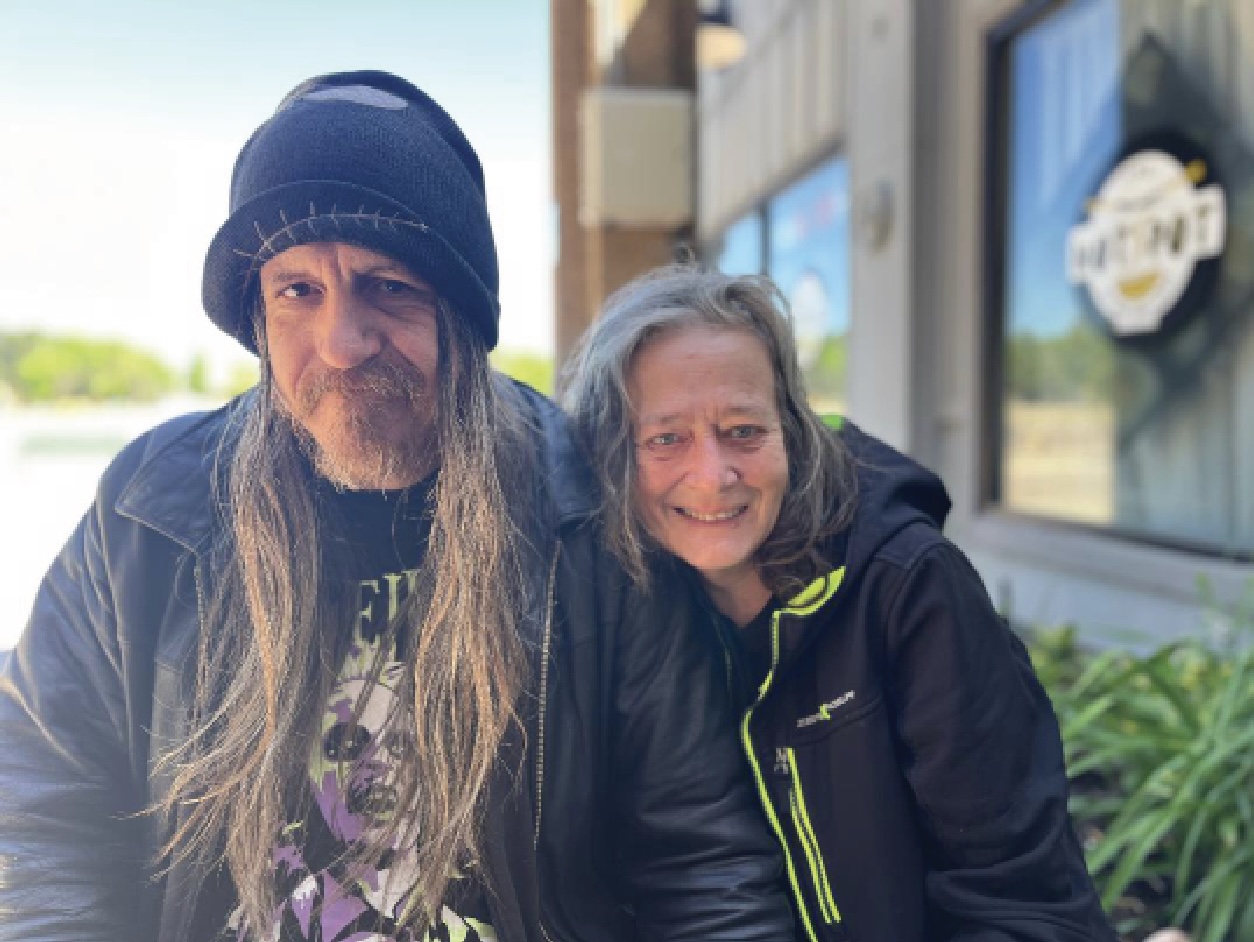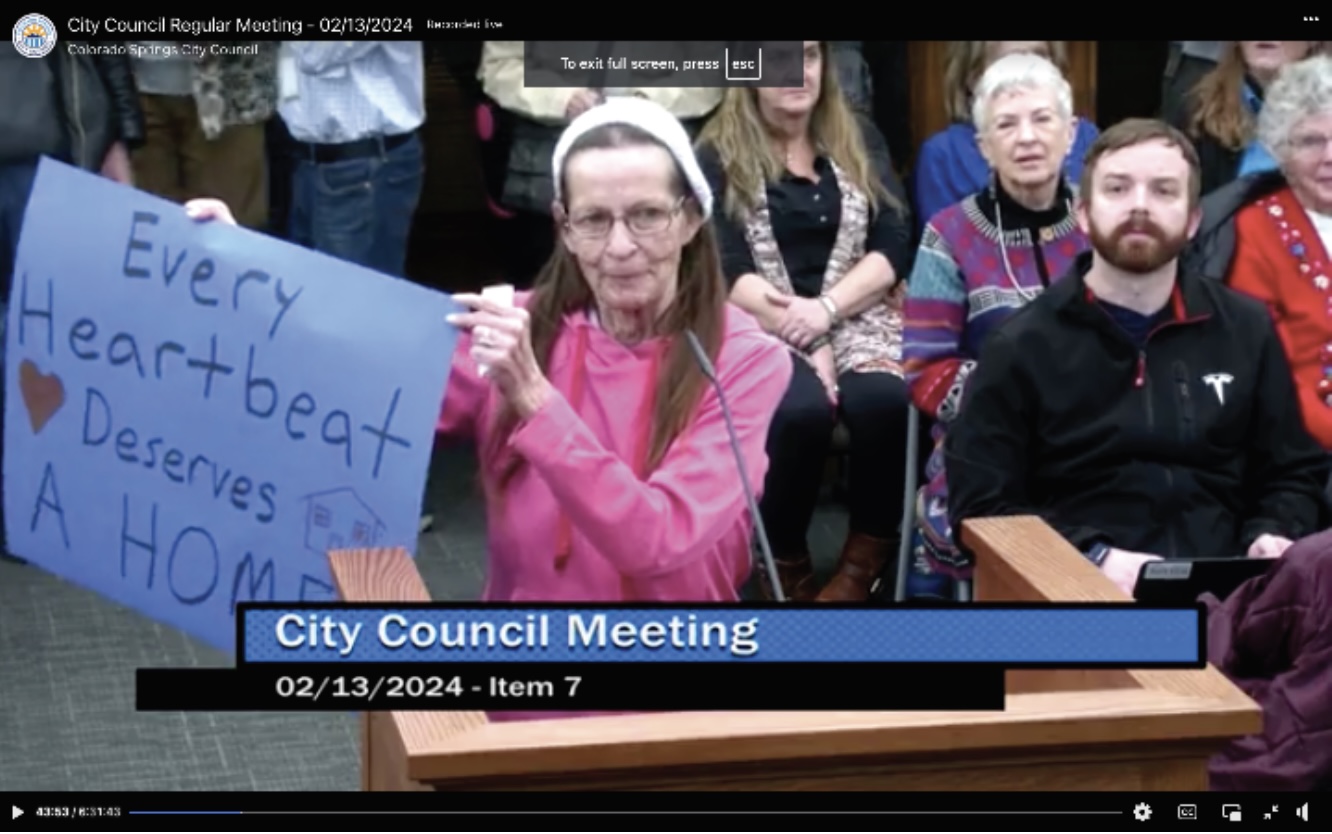The online version of this article has been revised to correct an editing error.
This is the first installment in the “All our Neighbors” series about the Colorado Springs Homeless Union, its advocacy work and the personal stories of some of its members.
Public conversations about homelessness should include people with lived experience. That’s a foundational premise of the Colorado Springs Homeless Union.
Another core conviction, repeated often by union members, is “every heartbeat deserves a home.”
The union meets weekly at Westside Cares, a nonprofit interfaith collaboration that provides crisis human services for basic needs like food, clothing and medical care.
Union members report that meetings are typically attended by anywhere from six to 18 people, depending on the day. Most of those who attend are currently or formerly homeless.
Recently, the group has started hosting some additional meetings at America the Beautiful Park so that members of the unhoused community who live downtown and on the south side of the city can more easily attend.
The union is facilitated by Max Kronstadt, Lead Organizer with The Colorado Springs Pro-Housing Partnership, an affordable housing advocacy group.
The spark for the Colorado Springs Homeless Union began in late summer of 2023 with conversations between several members of the unhoused community – Debra Cain, Shane Hood, and Barbara Berry – and Kronstadt.

“We talked a lot about the ways in which the city’s homelessness response was falling short of what people needed, and I learned about the National Union of the Homeless, a group with chapters around the country that organize unhoused communities to push for local change,” Kronstadt said. “I suggested to them that we start a chapter here and they were enthusiastic, so we decided to move forward.”
Kronstadt said he reached out to Westside Cares Executive Director Kristy Milligan and she recruited a few other unhoused leaders to join.
We decided to move forward – Max Kronstadt
The union has identified and focused on four main issues: expanding shelter options; better outreach models that avoid criminalizing or harming people experiencing homelessness; ensuring bathrooms and trash disposal are available in public spaces; and creating free transit for those crossing town to access work, public benefits and other services.
The Homeless Union has approached the Colorado Springs City Council to advocate for these policy goals, starting with a letter presented to council in October. The union went back to council in February to speak on the need for more shelter options, an issue that had just been highlighted by a cold snap.
Cain came to the meeting with a handwritten sign reading “Every heartbeat deserves a home” and spoke to the council on the need for more shelter options for people with medical and psychological issues that she said the Springs Rescue Mission is not prepared to handle.
Cain, Hood, Berry and others spoke about how lack of shelter options—whether due to medical, psychological, or other issues – has led to more deaths of unhoused people. Berry cited nearly 100 deaths in 2023.
Following that meeting, union members met with several city councilors – Nancy Henjum, Michelle Talarico, and David Leinweber, according to Kronstadt.
“Leaders of the union shared personal stories and we agreed to continue collaborating,” Kronstadt said.
In a conversation with the Bulletin, Milligan agreed that expanded shelter options would help the unhoused community.
“There is a burgeoning need for shelter options for medically vulnerable individuals, many of whom are older adults; and people with acute trauma histories who cannot access larger shelter operations,” she said.

A union member who asked to be identified only as Ford told the Bulletin he hears the sentiment that “we don’t think you want to get off the streets because you won’t go to the Mission” and said that is not the case. He said some people feel safer in their groups out camping, and some may choose to sleep on the sidewalk precisely because it is public – they feel less vulnerable when passersby can see what happens.
Ford is himself unhoused and does not feel comfortable at the Mission, so he typically camps on the Westside.
He said that he once lost important medication due to his tent and belongings being removed by the Colorado Springs Police Department Homeless Outreach Team, known as the HOT.
According to its website, the HOT was formed in 2009 after “dramatic increase in the number of homeless camps” the previous year. Since then, it has been “compassionately serving the homeless community by providing citizens with information and referrals that help them find permanent housing and become self-sustainable” – though many in the unhoused community dispute the “compassionately” part. Camp removals are commonly described by union members as traumatic setbacks for those who experience them.
Ford said he has several serious medical conditions and was at a doctor’s appointment at the time his belongings were removed. He said that the HOT had left a 24-hour notice that his tent and belongings would be removed.
“But just because they put up a 24-hour notice doesn’t mean there’s someplace for us to go,” he said.
For those who do not feel comfortable utilizing the Mission, Ford suggested there may be other organizations that those persons would feel comfortable going to for shelter. He listed Sanctuary Church and Westside Cares as places that have relationships with unhoused individuals and have built trust with them.
“Let them come up with the place for us to stay,” he said, adding that even something as basic as a secure place to camp would be a welcomed option.

In the last few months, the union has been strategizing, identifying which of its main issues to prioritize in the short-term.
Sanitation – access to bathrooms and trash disposal – came out top of the list.
“A group of housed volunteers are working to create a weekly trash collection service for homeless camps,” Kronstadt said. “This is motivated by the knowledge that there are no public trash cans, much less a trash collection service, in most areas where unhoused people live, and that the vast majority of unhoused people want to clean up after themselves and their community but can’t do so for lack of infrastructure.”
Hood said he’d like to see homeless people employed cleaning up trash and monitoring the bathrooms.
“Take people that are homeless and get them out of homelessness by paying them to clean up trash cans and monitor the bathrooms,” he said.
Hood has started a Facebook page for the Colorado Springs Homeless Union.
“I’m just trying to…inform people about what’s really going on versus what they’ve been told,” he said. “People are like, ‘oh, well, the homeless are like this’ – but you’re not homeless. You’ve never been around the homeless. How do you know what the homeless want or anything?”
“I’m trying to change that to some degree with what I post,” he said.


